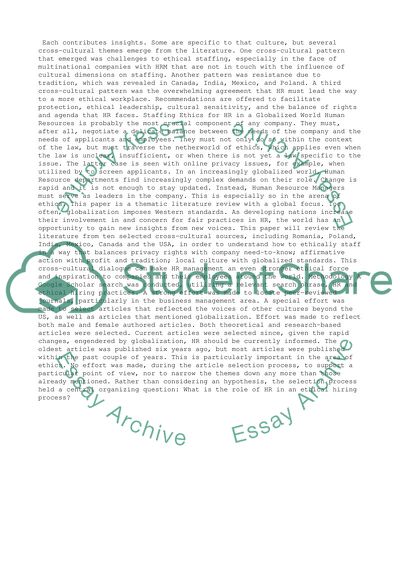Cite this document
(“Staffing Ethics for HR in a Globalized World Research Paper”, n.d.)
Retrieved from https://studentshare.org/business/1401508-hr-managers-role-in-ethics-during-the-hiring
Retrieved from https://studentshare.org/business/1401508-hr-managers-role-in-ethics-during-the-hiring
(Staffing Ethics for HR in a Globalized World Research Paper)
https://studentshare.org/business/1401508-hr-managers-role-in-ethics-during-the-hiring.
https://studentshare.org/business/1401508-hr-managers-role-in-ethics-during-the-hiring.
“Staffing Ethics for HR in a Globalized World Research Paper”, n.d. https://studentshare.org/business/1401508-hr-managers-role-in-ethics-during-the-hiring.


